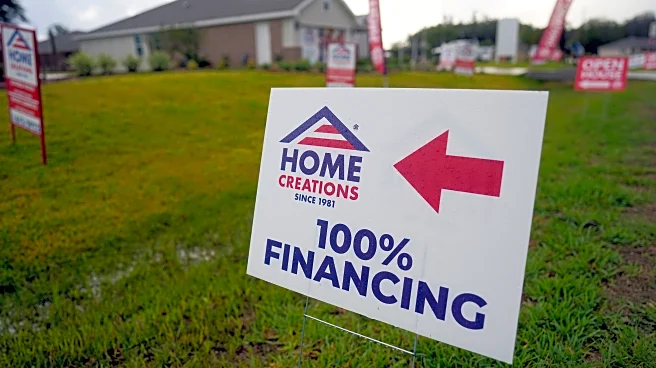Rapid Read • 7 min read
President Trump has signed an executive order allowing alternative assets such as private equity, cryptocurrency, and real estate to be included in 401(k) retirement plans. This directive instructs the Labor Department to review guidance on private market investments in retirement plans governed by the Employee Retirement Income Security Act of 1974. The move aims to provide fund managers access to trillions of dollars in retirement savings, potentially benefiting major asset managers like Blackstone, KKR, and Apollo Global Management. Critics, however, warn of increased risk in retirement investments. The order aligns with Trump's campaign promise to position the U.S. as a leader in the crypto industry.
AD
This executive order could significantly impact the U.S. retirement savings landscape by diversifying investment options available to savers. Allowing alternative assets in 401(k)s may offer higher returns, appealing to savers seeking more dynamic investment strategies. However, it also introduces potential risks, as these assets can be volatile and complex. Asset managers stand to gain from accessing a new funding source, potentially increasing their influence in the retirement savings market. The directive reflects broader trends in financial regulation under Trump's administration, emphasizing innovation and expansion in investment opportunities.
The Labor Department will review existing regulations and guidance, potentially leading to changes that facilitate the inclusion of alternative assets in retirement plans. Asset managers may begin forming partnerships to capitalize on this new opportunity, while retirement plan providers could adjust their offerings to include private equity and crypto assets. Stakeholders, including financial advisors and retirement plan administrators, will need to assess the implications for savers and address concerns about risk management. The development may also prompt discussions on regulatory oversight and consumer protection in the evolving retirement savings market.
AD
More Stories You Might Enjoy












